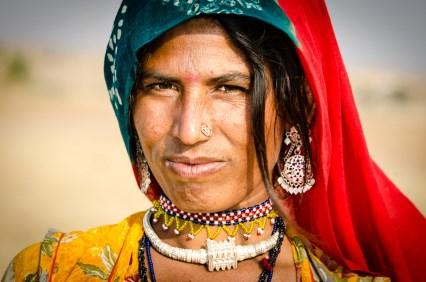
New ‘Young Women Social Entrepreneurship Development Programme’ in India is to identify women working in social enterprises and train them to become ‘Master Trainers’
The economic reforms India launched in 1991 have led to a quadrupling of its GDP, a doubling of hourly wages and the emergence of a new middle class. However, 350 million Indians still live below the poverty line and struggle to access basic education, health care or proper nutrition.
Social enterprises offer a way for more poor Indians to share in the country’s growth and provide innovative, sustainable solutions to its entrenched social problems. Hope for the future is also invested in India’s women. Currently, only 39% of Indian women are formally employed, compared to 81% of Indian men and 71% of Chinese women. Moreover, India scored second to last, behind Egypt and Morocco, in a Gender GEDI Female Entrepreneurship Index measuring women entrepreneurs in 17 countries. Increasing Indian women’s participation in the labour force will enhance productivity and growth. It will also help to reduce the gender-based inequalities and social pressures that restrain female employment and entrepreneurship.
This is the context in which the British Council and partner Diageo launched a ‘Young Women Social Entrepreneurship Development Programme’ in India last month. The programme will identify women working in social enterprises and organisations that support women and train them to become ‘Master Trainers’. It will assess their development needs and design and deliver a training course for them that uses innovative methodologies and draws on UK expertise and best practices. In a second phase, the programme will support these Master Trainers as they provide social enterprise training to approximately 1,000 young women in India.
“Our programme aims to create a ripple effect and disseminate social enterprise expertise to women in communities across India,” said Dr. Guru Gujral from British Council India. He added, “50% of India’s population is under the age of 25, and 65% is under 35, so supporting the emergence of a new generation of young women social entrepreneurs is an important investment in the future. They will inspire other women for years to come and support more sustainable and inclusive growth,” he said.
Abanti Sankaranarayanan, Managing Director Diageo India, explained that the programme is a part of Diageo’s corporate social responsibility programme called Plan W. “In India, women have made great strides in the corporate world in the last three decades, yet they face several challenges from all socio-economic segments. The idea is to empower and encourage women in India through social entrepreneurship,” she said. Plan W aims to empower two million women in 17 countries in Asia-Pacific by 2017. The initiative aims to reach women of all socio-economic profiles through training and skills development.
According to a report by the Asia Development bank (India Social Enterprise Landscape Report, 2013), India’s social enterprise sector is diverse and thriving. Indian social enterprises are working in traditional sectors such as microfinance and agriculture and new sectors including energy, sanitation, affordable housing and health care. In Mumbai alone, non-profit organisations educate more than 250,000 children on a daily basis.
Professor Durreen Shahnaz is a contributor to a landmark Asian Development Bank study of social enterprise in India and the founder Shujog and IIX (Impact Investment Exchange), which facilitate social impact investment in Asia. She said, “As we have seen through the microfinance revolution, even small amounts of credit can empower women to make tremendous changes to the lives of her family members and community. If, now, women are encouraged to create larger business with social impact, these aspiring women social entrepreneurs will change the entire development landscape of India.” She said, “it is exciting for me to find out about this programme between British Council and Diageo,” and noted that Shujog and IIX “are also committed to working with more women social entrepreneurs and benefitting more women as ultimate beneficiaries through our programme Shujog ACTS and our investment platforms on IIX.”
Christine Wilson, Head of Society Engagement at the British Council, said that, “around the world women social entrepreneurs are leading the way for gender equality.” In the UK, a recent survey found, 39% of social enterprises have a woman leader, compared with only 19% of SMEs and 3% of FTSE 100 companies. Global research agrees that social enterprise has a higher proportion of female leaders than traditional commercial enterprises. “The British Council recognises social enterprise as a tool to achieve fairer, more inclusive and sustainable economies and societies,” said Ms Wilson, noting that the British Council’s Global Social Enterprise programme has supported and trained over 6,000 female social entrepreneurs between 2012 and 2014.
India is the sixth country in Asia in which the British Council and Diageo have worked together to support social entrepreneurs. The two organisations have also partnered on social enterprise development in China, Indonesia, Malaysia, South Korea and Vietnam.
Click here to read the original Guardian article
